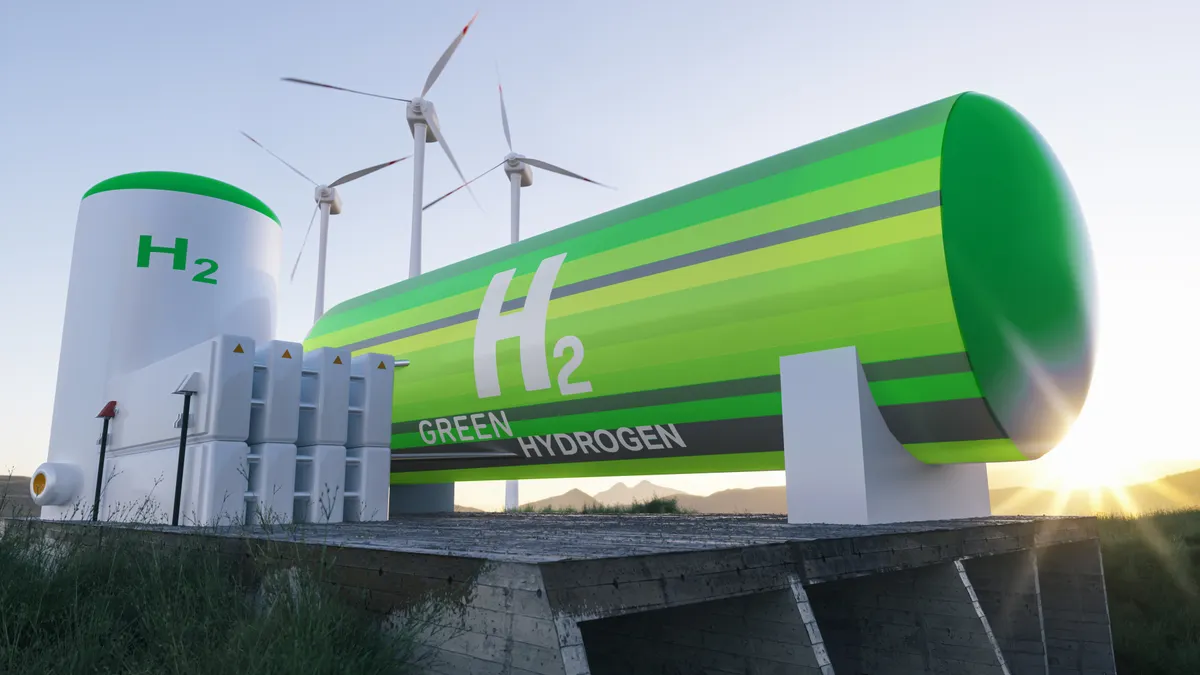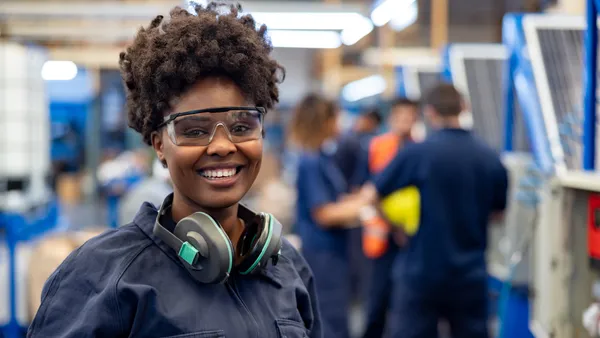The Biden administration last month set long-term clean hydrogen production goals as part of a plan to accelerate commercial deployment of the energy resource, which has become a critical piece of the White House’s Investing in America agenda.
The administration aims to produce 10 million metric tons of clean hydrogen per year by 2030 and 50 million by 2050, in line with its decarbonization efforts to hit net zero emissions in the same time frame.
The roadmap outlines three key priorities to achieve that goal. This includes targeting hard-to-electrify sectors where clean hydrogen will have the most impact like heavy duty transport and industrial manufacturing; reducing the cost of the resource; and cultivating regional production hubs near those high-impact user markets.
“[The Department of Energy] worked alongside our federal partners to develop the U.S. National Clean Hydrogen Strategy and Roadmap that will lay the foundation for a strong and productive partnership between the public and private sectors and will guide government and industry,” Secretary of Energy Jennifer Granholm said in a statement.
The priorities underpin the $9.5 billion earmarked for clean hydrogen through the Infrastructure Investment and Jobs Act, such as lowering its cost to encourage adoption.
In March, the Department of Energy announced $750 million for research, development and demonstration efforts to slash the cost of clean hydrogen by 80% within the decade.
The funds mark the start of executing on two of the infrastructure law’s cost-cutting provisions, which seek to advance electrolyzer technologies used to produce clean hydrogen and improve manufacturing and recycling capabilities for hydrogen materials.
“This roadmap will align the private and public sectors on a shared path to drive faster toward a cleaner, more secure energy future,” Assistant to the President and National Climate Advisor Ali Zaidi said in a statement.
Some companies, however, have already begun pursuing projects to enable more cost-effective clean hydrogen. General Motors and Norway-based manufacturer Nel teamed up in November to scale production of Nel’s new electrolyzer technology.












